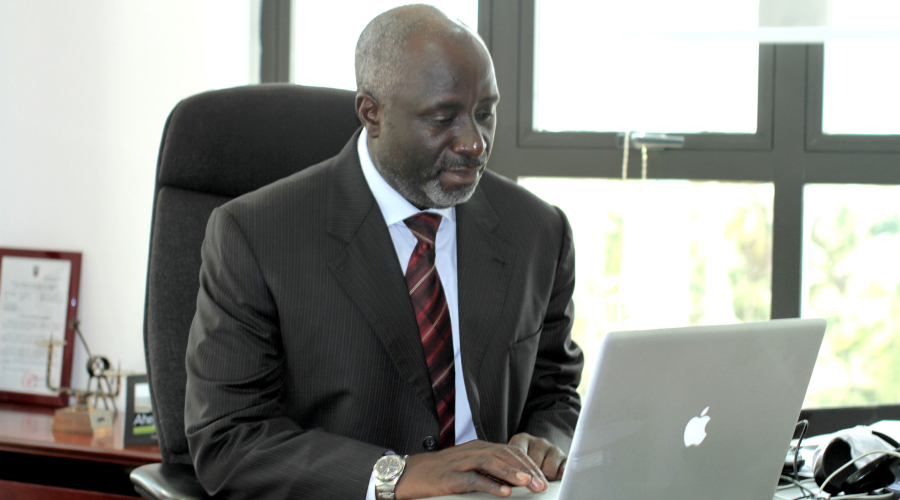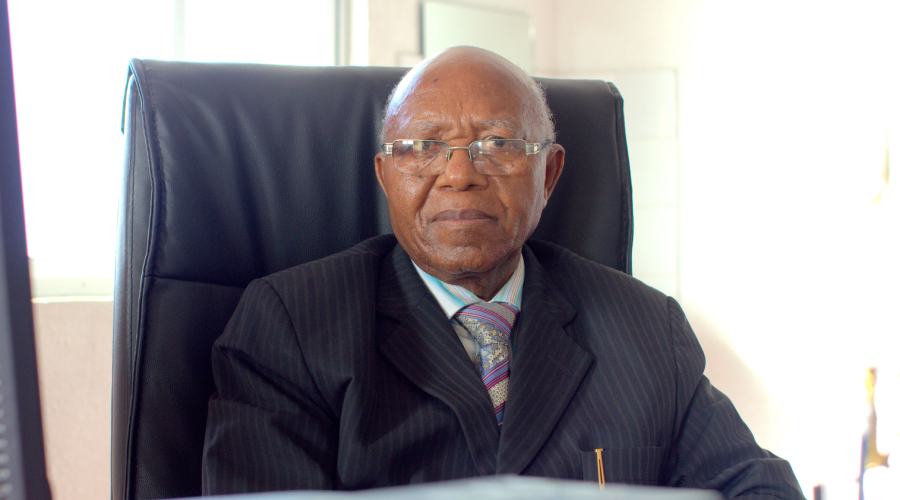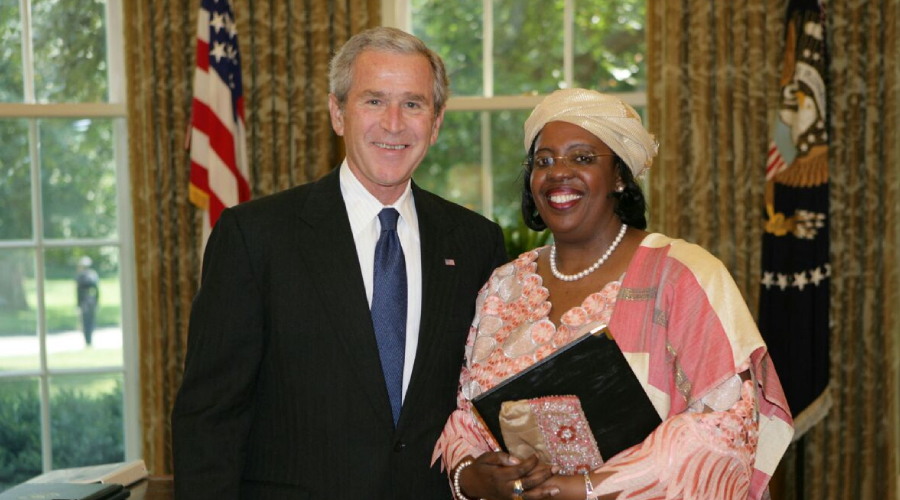Tribute to Ali Mufuruki’s legacy of doing business

A graduate of Science Degree in Mechanical Engineering and Design, Ali Mufuruki was Founder and Executive Chairperson of Infotec Investment Group. He embodied Tanzania’s entrepreneurial spirit and business vision. Looking at the way he did his business, one concludes that he was a born businessperson although as he put it himself business was never his choice.
The business portfolio of Ali Mufuruki includes investment in Telecom and Entertainment, Hospitality, IT, Retails, Clothing (Woolworth stores in Uganda and Tanzania), and real estate. He was one of the very few successful entrepreneurs. His entrepreneurial flair earned him the directorship and chairpersonship of many companies, foundations and forums. He was the Chairperson of Tanzania Chief Executive Officers (CEOs) Roundtable, a forum that brings together top company CEOs in Tanzania. He was also a board member of different companies in East Africa.
Mufuruki was born of a humble background, but managed to rise to fame and glory through the dint of hard work and determination. He was very humble, kind and good at maintaining contacts with other people. He was a business mentor, icon and possessed most of the virtues that people admire most. Who’s who Tanzania takes us through an exclusive interview with him when he was still with us as a tribute to him.
Who’s who in Tanzania: Readers of Who’s who Tanzania want to know who Ali Mufuriki is. Could you give us a belief background of yourself?
Ali Mufuruki: I was born in a small village called Kanyinya, not very far from Kemondo Bay on the shores of Lake Victoria. I spent the first 13 years of my life with my grandmother who we loved calling Ma Spina. The youth like my children will never understand what it was like back then. Village life was interesting because people lived in an active communal life with active participation in celebrations and in mourning. In general, social life in the village was like a family living as one.
Who’s who in Tanzania: Becoming an engineer calls for hard work as a student at another level. How was it possible for a boy from the shores of Victoria to be able to make it?
Ali Mufuruki: I began formal education at the age of six. I joined Kahororo Secondary School in Kahohoro in 1972 aged 13 years. At that time it was common for people to study old and I remember some of my classmates were aged 18 years and above. I later joined Lake Secondary and it was there where I completed my Form four. From Lake Secondary School, I went to Old Moshi High School for my Advanced Level education. I took Physics, Chemistry and Mathematics (PCM) as my combination. I was good at those subjects and like at my O-Level, I passed my advanced exams with flying colours. I was one of the top 3 students in the whole country. After high school, I received an offer through the National Development Corporation (NDC) to be interviewed for a scholarship from the Government of the Federal Republic of Germany as it was awarding scholarships to five or six high school exceptionally performing students. On June 4, 1980, I landed in Germany to start a seven-year course in Mechanical Engineering. After graduation, I worked with Mercedes-Benz and was actually about to get a full time contract, but I preferred to return home and practise engineering. I returned in 1987 and reported directly to NDC, the official sponsor of my scholarship and it found me an engineering job at National Engineering Company (NECO).
Who’s who in Tanzania: Most young Tanzanians wish for nothing more than become engineers. What made a Germany trained-engineer like you to turn to business for a making living?
Ali Mufuruki: For Economic reasons salaries in the 1980s were too low, and life was so expensive. As Head of the Department of Mechanical Engineering Design I was earning just about Sh6,800 and there was no way I could survive on that. Imagine I had a small car that I had bought while I was still in Germany and I had to refuel for Sh20,000 every month and yet my salary was only Sh6,800. So, I used the savings I had made while in Germany. Being so disappointed and desperate I decided to resign from NECO and find sustenance elsewhere.
Who’s who in Tanzania: Many people fear to leave a job on their own, how easy was it for you to leave NDC?
Ali Mufuruki: As I said earlier, starting a business was a matter of desperation.
I was looking at the possibility of starvation, not being able to service my car the next time it broke down, right up to not getting treatment the next time I fell ill. I had many dependants I was supporting at the time. I remember having to discuss it with some of my colleagues, very good friends, some of whom were working at NECO and told me it would be a crazy decision to quit my job to join business. I set up a computer services company which wasn’t exactly my specialisation, but it was the technology I had been exposed to while working as a salesperson in Germany.
Only a few government offices and a few donor-funded projects had computers and even then they were not using them because people were not trained in using them. I neither had I a big office nor a big team. Actually, I didn’t need a lot of capital to get started. I just needed Sh20,000 for opening a bank account. After a year I started talks with Siemens of Germany about the possibility of representing them here (in Tanzania) and because of my German connections and because Siemens was not represented here, they gave me the dealership. I remember in the first year in 1989 the turnover was Sh900,000. It was not a lot of money because rent was Sh150,000 a month for the office. By 1999 (10 years later) we had grown so many times almost a 1,000-times and our turnover was in access of a billion Tanzanian shillings and the company was employing more than 30 people. We had fully-fledged departments of training, service and customer care.
Who’s who in Tanzania: Do you see the business deal with Siemens as a turning point in your business career?
Ali Mufuruki: I wouldn’t say so, but they helped me a lot because all other big brands were taken - IBM and Wang Computers - if you remember. Those were the big names back then and that was before Compacq Dell, and before Mac. It was not easy to get a brand that was credible to become a dealer. So, when they allowed me to use that brand and become their representative here I felt that they were doing me a favour.
Who’s who in Tanzania: Could you take us through the growth of your business in the last 20 years from the one-man show to hundreds.
Ali Mufuruki: We started doing retail business in 1999 and we opened the first Woolworth store in this country. Before that we never had a department store where you could walk and simply pick what you want, go to the fitting room and pay. We didn’t have that kind of culture in this country. We wanted to add a few more stores then, but we realised that most of the cities in the country were not ready. They didn’t have the right kind of buildings. So, we opted to go to Uganda. Nairobi already had a Woolworth store owned by the Kibaki Family. Our first store was at workers house on Pilkington Avenue in Central Kampala. Unfortunately, it didn’t do quite well. We had to shut it down within the next 2 years. Fortunately, in Uganda there was a proliferation of shopping malls so we opened another store in a shopping mall at Garden City and now we have another shop if not the biggest store in Metro Place Mall. That is how we were able to expand our business, otherwise we were constrained because we were not able to expand horizontally by adding more trading stakes in Tanzania and that was why we had to expand vertically. We are constantly working and now we look forward to expanding to Mwanza, Moshi, and Dodoma. We work with real estate developers and there is a bit of real estate development going on.
Who’s who in Tanzania: Is there any serious challenges in the course of doing business?
Ali Mufuruki: Yes, there is one major problem and that is human resources. Human resources capability is a big challenge especially in this country. When you grow a business it outstrips your capacity to manage it yourself and you have to rely on other people to help manage it for you. I cannot be here in Dar es Salaam and still want to manage the business in Arusha, Mwanza and Kampala directly. I have to be able to put together a team that can run that business for me in a very transparent and efficient way. We have struggled in the last 14 years as a business, especially in Tanzania to get capable people to help run this business. The Uganda business since we established it had been under the management of Ugandans from day one to date. It has been growing very well, it has overcome a lot of challenges, but I don’t worry much about Uganda as I do about Tanzania. The Tanzanian business is headed by a foreigner. We have tried to develop our own people, but they just don’t take up the challenge and schools are not producing good quality graduates.
Who’s who in Tanzania: What is your advice to people in this country, especially young people?
Ali Mufuruki: Today’s young people are often driven by success. I see people who want to succeed at any cost. They have no regard for morality or ethical questions that they face in their chosen direction. My advice to them is that success requires three things: the first is hard work. You have to be able to work very hard and there is no limit to how hard it can be. So, one has to be prepared for it. The other is discipline. Hard work can always produce results, but to sustain those good results you have to be disciplined and being disciplined means the way you behave, the way you manage your life and the financial discipline and how you use your money. The other intangible thing, but in my opinion is probably the most important thing, is integrity. This s the biggest asset a human being can have and I have found it to be true in my life. People should be able to trust you with their money, secrets and life. I find that incredibly powerful because people will come to you with money, looking for a business partner, but they can only work with somebody they trust.
Who’s who in Tanzania: We believe you have someone who has inspired you. Who are the most inspirational figures in your life?
Ali Mufuruki: There are many people who have made a difference in my life. Friends and family members, but the most important is my wife. She’s the only person I know, who I have been with during the last 20 years and a lot of things have happened during the last 20 years. She has greatly supported me emotionally.


